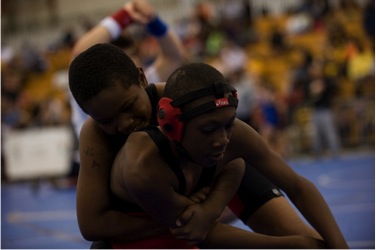NATO Summit: May 2012 Archives

The 25th NATO Summit opened earlier today, May 20, 2012. This is the largest summit in the organization's history. With more than 60 countries in attendance, dignitaries at the summit hope to find areas of collaboration as the group navigates its military commitments during the past year. Let's hope that their resolutions are longer lasting than citizen anger over clogged up transportation in the city. Here are four major topics of discussion at NATO and how they are expected to play out:
1. Afghanistan
By far the most important item on the agenda, NATO's operation in Afghanistan has been the longest and biggest operation that it has conducted to date. An important purpose of this summit is to work out the logistics of how this involvement will end and how to best support the transition to Afghanistan leadership. The majority of NATO is in agreement to stick to the original timeline of keeping troops in Afghanistan until 2014 to maintain stability as Afghanistan deals with securitizing its borders and upcoming elections.
However, France's recent election of Francois Hollande, who has pledged to withdraw French combat troops from Afghanistan as soon as the end of this year, may destabilize this earlier commitment. His position has caused ripples within the organization. It will be addressed in this week's summit and have an impact on the final resolution concerning Afghanistan.
2. Pakistan
Pakistan's president Asif Ali Zardari received a last minute invite to the summit to discuss and hopefully resolve issues around reopening of critical NATO supply lines that run between Pakistan and Afghanistan. The supply lines, through which about 40% of NATO's supplies passed, were closed in November 2011 after 24 Pakistani soldiers were killed in American air strikes along the border between Afghanistan and Pakistan. There has been continual tension between the US and Pakistan over both its nuclear program and the presence of Taliban/al-Qaeda cells that are fueling unrest in Afghanistan.
3. Syria and the Arab Spring
The past year has been NATO's most active year in the last century. Its intervention in Libya helped bring down the Gaddafi regime and has been deemed a success by the international community. Now many NATO countries are arguing for the same kind of intervention in countries like Syria, which has been racked with political violence since riots began against the Assad regime last year. The international response has been very limited and largely non-military as compared to the similar situation in Libya. It is unclear whether NATO will decide to take further military action in the region.
4. Defense Spending
Many of NATO's member countries (particularly in Europe) are still experiencing adverse effects from the recent economic downturn, so the money needed to fund the Afghanistan transition will be in short supply.This is exacerbated by the difference in military capability and defense spending between the United States and Europe; the United States spends more and provides more military force than it's European counterparts. This was forced into the spotlight during the intervention in Libya. Thus, figuring out which roles each nation will play in helping Afghanistan transition and in the future will be an equally important question and challenge to sort through this week.
By: Sydney Paul, Class of 2012
Photo Credit: World Sport Chicago

Chicago is getting restless. The NATO Summit begins in few days and we're beginning to hear about how it could affect the city. This is the first time the Summit will be held outside of Washington, D.C. and such a grand occasion will require grandiose amount of planning. But when we're talking about such a complex, large event, it is hard to remember just how many groups of people this could have an impact on.
Chicago's government administration has set up the city to host more than 50 world leaders. Chi-town's finest are prepared to protect and serve residents and guests alike. Local and visiting protesters will also be present throughout the weekend's events. And let's not forget about everyday Chicagoans who will be going to work and/or personally enjoying the city themselves on what promises to be a nice weekend weather wise. Seems like we've covered all parties, right? Well, where do Chicago's youngest citizens fall in this equation?

Recent Comments
buy tao of badass on Remembering "The Killing Floor": A Look at Chicago's Labor Union History: Do you min
upload document on Much hospitality this weekend...: I was sugg
ragingbullalert.Info on Much hospitality this weekend...: This site
buy sonic producer on Remembering "The Killing Floor": A Look at Chicago's Labor Union History: I've gone
Juliane on The Year of the Jello Mold: Very great
selma web design on Haiti Earthquake Response: Hey there.
essay writer on SonicChicago: Voices from the Hyde Park Book Sale: Do you hav
VangSandra29 on SonicChicago: Voices from the Hyde Park Book Sale: Some time
Berlin Germany on 'You Gotta Go Get It': Caesarei Marsh of the Living Room Cafe in Woodlawn: I'd like t